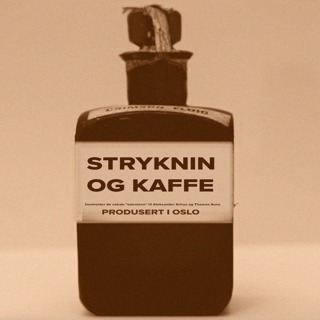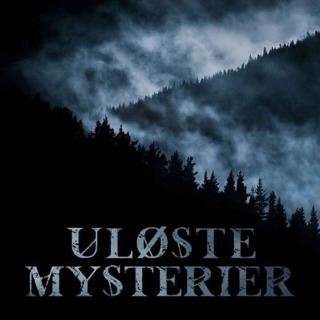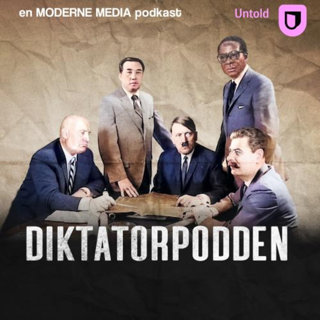
Emmy Noether
Melvyn Bragg and guests discuss the ideas and life of one of the greatest mathematicians of the 20th century, Emmy Noether. Noether’s Theorem is regarded as one of the most important mathematical theorems, influencing the evolution of modern physics. Born in 1882 in Bavaria, Noether studied mathematics at a time when women were generally denied the chance to pursue academic careers and, to get round objections, she spent four years lecturing under a male colleague’s name. In the 1930s she faced further objections to her teaching, as she was Jewish, and she left for the USA when the Nazis came to power. Her innovative ideas were to become widely recognised and she is now considered to be one of the founders of modern algebra.With Colva Roney Dougal Professor of Pure Mathematics at the University of St AndrewsDavid Berman Professor in Theoretical Physics at Queen Mary, University of LondonElizabeth Mansfield Professor of Mathematics at the University of Kent Producer: Simon Tillotson
24 Jan 201948min

Samuel Beckett
Melvyn Bragg and guests discuss Samuel Beckett (1906 - 1989), who lived in Paris and wrote his plays and novels in French, not because his French was better than his English, but because it was worse. In works such as Waiting for Godot, Endgame, Molloy and Malone Dies, he wanted to show the limitations of language, what words could not do, together with the absurdity and humour of the human condition. In part he was reacting to the verbal omnipotence of James Joyce, with whom he’d worked in Paris, and in part to his experience in the French Resistance during World War 2, when he used code, writing not to reveal meaning but to conceal it.WithSteven Connor Professor of English at the University of CambridgeLaura Salisbury Professor of Modern Literature at the University of ExeterAnd Mark Nixon Associate Professor in Modern Literature at the University of Reading and co-director of the Beckett International FoundationProducer: Simon Tillotson
17 Jan 201948min

Papal Infallibility
Melvyn Bragg and guests discuss why, in 1870, the Vatican Council issued the decree ‘pastor aeternus’ which, among other areas, affirmed papal infallibility. It meant effectively that the Pope could not err in his teachings, an assertion with its roots in the early Church when the bishop of Rome advanced to being the first among equals, then overall head of the Christian Church in the West. The idea that the Pope could not err had been a double-edged sword from the Middle Ages, though; while it apparently conveyed great power, it also meant a Pope was constrained by whatever a predecessor had said. If a later Pope were to contradict an earlier Pope, then one of them must be wrong, and how could that be…if both were infallible?WithTom O’Loughlin Professor of Historical Theology at the University of NottinghamRebecca Rist Professor in Medieval History at the University of ReadingAnd Miles Pattenden Departmental Lecturer in Early Modern History at the University of OxfordProducer: Simon Tillotson and Julia Johnson
10 Jan 201951min

Venus
Melvyn Bragg and guests discuss the planet Venus which is both the morning star and the evening star, rotates backwards at walking speed and has a day which is longer than its year. It has long been called Earth’s twin, yet the differences are more striking than the similarities. Once imagined covered with steaming jungles and oceans, we now know the surface of Venus is 450 degrees celsius, and the pressure there is 90 times greater than on Earth, enough to crush an astronaut. The more we learn of it, though, the more we learn of our own planet, such as whether Earth could become more like Venus in some ways, over time. WithCarolin Crawford Public Astronomer at the Institute of Astronomy and Fellow of Emmanuel College, University of CambridgeColin Wilson Senior Research Fellow in Planetary Science at the University of OxfordAnd Andrew Coates Professor of Physics at Mullard Space Science Laboratory, University College LondonProduced by: Simon Tillotson and Julia Johnson
27 Des 201850min

The Poor Laws
Melvyn Bragg and guests discuss how, from 1834, poor people across England and Wales faced new obstacles when they could no longer feed or clothe themselves, or find shelter. Parliament, in line with the ideas of Jeremy Bentham and Thomas Malthus, feared hand-outs had become so attractive, they stopped people working to support themselves, and encouraged families to have more children than they could afford. To correct this, under the New Poor Laws it became harder to get any relief outside a workhouse, where families would be separated, husbands from wives, parents from children, sisters from brothers. Many found this regime inhumane, while others protested it was too lenient, and it lasted until the twentieth century.The image above was published in 1897 as New Year's Day in the Workhouse.WithEmma Griffin Professor of Modern British History at the University of East AngliaSamantha Shave Lecturer in Social Policy at the University of LincolnAnd Steven King Professor of Economic and Social History at the University of LeicesterProducer: Simon Tillotson
20 Des 201850min

Sir Gawain and the Green Knight
In a programme first broadcast in 2018, Melvyn Bragg and guests discuss one of the jewels of medieval English poetry. It was written c1400 by an unknown poet and then was left hidden in private collections until the C19th when it emerged. It tells the story of a giant green knight who disrupts Christmas at Camelot, daring Gawain to cut off his head with an axe if he can do the same to Gawain the following year. Much to the surprise of Arthur's court, who were kicking the green head around, the decapitated body reaches for his head and rides off, leaving Gawain to face his promise and his apparently inevitable death the following Christmas.The illustration above is ©British Library Board Cotton MS Nero A.x, article 3, ff.94v95With Laura Ashe Professor of English Literature at Worcester College, University of OxfordAd Putter Professor of Medieval English Literature at the University of BristolAnd Simon Armitage Poet and Professor of Poetry at the Universities of Leeds and OxfordProducer: Simon Tillotson
13 Des 201851min

The Thirty Years War
Melvyn Bragg and guests discuss the war in Europe which begain in 1618 and continued on such a scale and with such devastation that its like was not seen for another three hundred years. It pitched Catholics against Protestants, Lutherans against Calvinists and Catholics against Catholics across the Holy Roman Empire, drawing in their neighbours and it lasted for thirty gruelling years, from the Defenestration of Prague to the Peace of Westphalia of 1648. Many more civilians died than soldiers, and famine was so great that even cannibalism was excused. This topic was chosen from several hundred suggested by listeners this autumn.The image above is a detail from a painting of The Battle of White Mountain on 7-8 November 1620, by Pieter Snayers (1592-1667)WithPeter Wilson Chichele Professor of the History of War at the University of OxfordUlinka Rublack Professor of Early Modern European History at the University of Cambridge and Fellow of St John’s CollegeAndToby Osborne Associate Professor in History at Durham UniversityProducer: Simon Tillotson
6 Des 201850min

The Long March
Melvyn Bragg and guests discuss a foundation story for China as it was reshaped under Mao Zedong. In October 1934, around ninety thousand soldiers of the Red Army broke out of a siege in Jiangxi in the south east of the country, hoping to find a place to regroup and rebuild. They were joined by other armies, and this turned into a very long march to the west and then north, covering thousands of miles of harsh and hostile territory, marshes and mountains, pursued by forces of the ruling Kuomintang for a year. Mao Zedong was among the marchers and emerged at the head of them, and he ensured the officially approved history of the Long March would be an inspiration and education for decades to come.WithRana Mitter Professor of the History and Politics of Modern China and Fellow of St Cross College, University of OxfordSun Shuyun Historian, writer of 'The Long March' and film makerAndJulia Lovell Professor in Modern Chinese History and Literature at Birkbeck, University of LondonProducer: Simon Tillotson
29 Nov 201850min





















